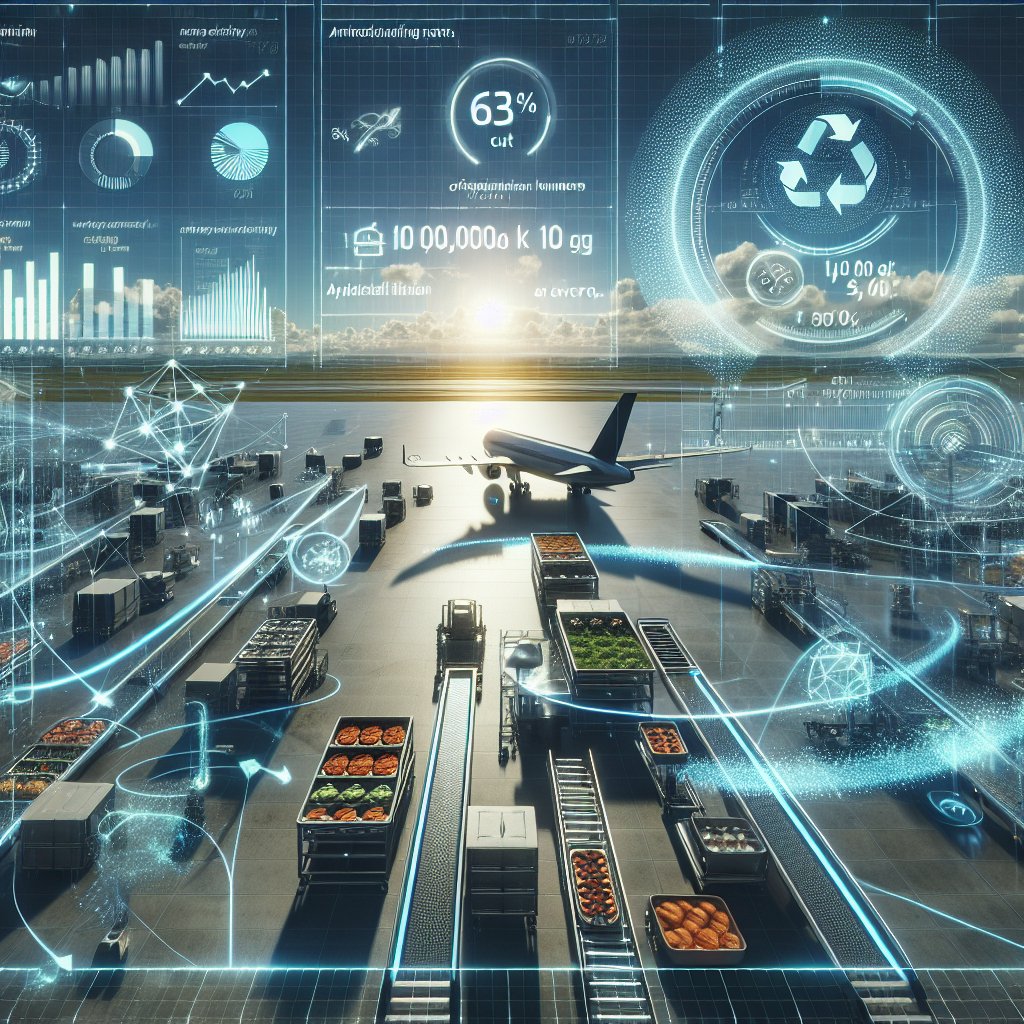Image created by AI
KLM Cuts Food Waste by 63% with AI Technology
In an ambitious drive towards sustainability, KLM Royal Dutch Airlines has reached a significant milestone by cutting down 63% of its food waste, reflecting an annual saving of more than 100,000 kg of meals. By integrating artificial intelligence into its operations, the airline can now predict with greater accuracy the number of passengers who will actually fly, thus optimizing meal planning per flight.
The waste reduction achievement comes at a time when airlines worldwide are seeking innovative ways to reduce their environmental footprint. KLM's approach not only contributes to environmental goals but also enhances operational efficiency and cost-effectiveness. This aligns with CEO Marjan Rintel's vision, who emphasizes the importance of digital technology investments in propelling KLM into a more sustainable and efficient future.
A key to this success is KLM's AI program which analyzes booking patterns and passenger data to forecast the actual boarding numbers. Traditionally, in the airline industry, there's a margin of booked passengers who, for various reasons, fail to board their flights. The carrier indicates that this figure ranges between 3 and 5% across different classes, a critical statistic for precise meal provisioning.
KLM has collaborated with Kickstart AI, a collective initiative aimed at promoting AI adoption among Dutch businesses, to develop a bespoke AI model, TRAYS, that focuses specifically on the airline's catering activities. More than just reducing waste, this data-driven model facilitates a well-coordinated effort in the expansive logistics involved in in-flight catering.
Sander Stomph, CEO and co-founder of Kickstart AI, expresses pride in contributing to KLM's advancements. The collaboration is a testament to how enterprises can leverage technology to address sustainability and operational challenges effectively.
As KLM moves forward, it sets an industry example of how airlines can manage resources responsibly while also taking a customer-centric approach. The precision in meal preparation not only prevents wastage but also ensures that the passengers' needs are met to the fullest extent, delivering a superior flight experience balanced with environmental consciousness.










